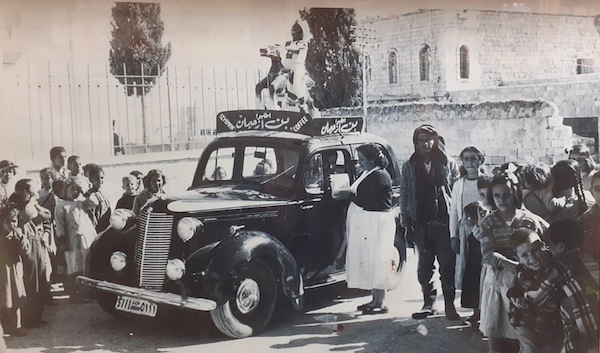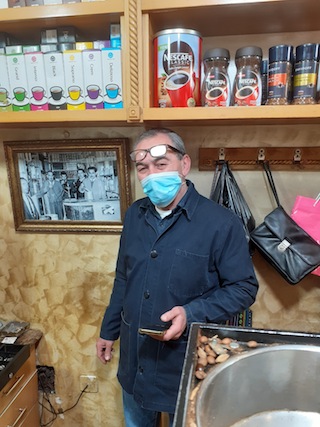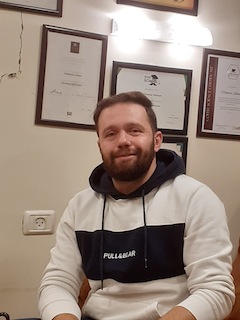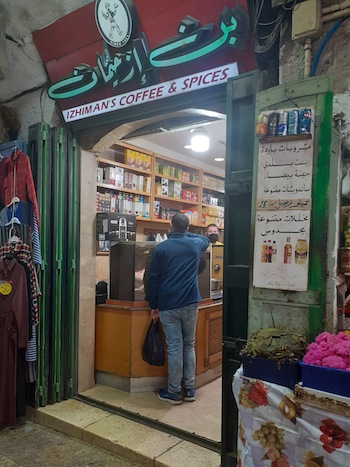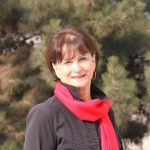In Startup Nation, Dan Senor and Saul Singer’s 2009 book about Israel’s successes in innovation and entrepreneurship, the authors credit the hothouse environment created by the country’s many challenges not as a barrier but as a catapult to its accomplishments.
For example, mandatory military service, made necessary by Israel’s tough neighbourhood, has helped cultivate leadership, teamwork, technical skills and adaptability under pressure. Put simply, young people who have made life-and-death decisions for themselves and their unit while still in their teens may be less daunted than other people when confronted with the risks required to succeed in business or other life challenges.
In what may be an unanticipated twist on this resilience and adaptability, a chain of cafés has emerged in Israel with a very specific clientele. Restaurateur Tamir Barelko launched Café Otef, a chain with two outlets and plans for more. Otef refers to the Gaza “envelope” area where the Oct. 7 invasion took place.
A Jewish Telegraphic Agency article last week on the coffee shops tells the story of Israelis’ sometimes unconventional approaches to resilience and recovery.
The cafés, staffed entirely by survivors of the Oct. 7, 2023, attacks on southern kibbutzim, feature products from affected communities: cheeses from Kibbutz Be’eri, honey from Kibbutz Erez and other foods and products, like T-shirts, aprons and water bottles, sourced from entrepreneurs affected by the tragedy.
The first such storefront, Café Otef-Re’im, named after the kibbutz adjacent to the Nova festival site and where seven residents were murdered and four taken hostage, is owned and run by Reut Karp. Her former husband, Dvir Karp, was murdered in front of their three children. Dvir was a chocolatier and his recipes are enjoyed by café customers.
Karp and other staff credit the cafés with getting them out of bed in the mornings. One displaced kibbutznik who experienced culture shock in Tel Aviv finds the clientele can appreciate his dark humour in ways locals cannot.
Karp emphasizes that the café’s association with the tragedy is not a “gimmick.” While Tel Aviv is sometimes derided as a “bubble” removed from the realities faced by Israelis in other parts of the country, the central location, she explains, is a benefit that allows displaced residents from the country’s north and south to meet and share experiences.
Comfortable Canadians can hardly imagine either the inescapable grief of Israelis directly affected by Oct. 7 or the daily challenges of living with the memories. Enjoying coffee and chocolate in an environment explicitly created for working through the pain of that day and its aftermath might seem counterintuitive to those who have never experienced anything remotely similar. It may be a distinctly Israeli response to face the realities head-on.
At the same time, Karp acknowledges that her café does not push the tragedy in customers’ faces. One could drop in, stay awhile and leave without ever knowing the motive behind the place. One unavoidable sign, however, is a work of art made up of text messages sent on the tragic day.
Two new cafés are planned for the near future, including Café Otef-Sderot, named for the southern town that has always been on the frontline of Gaza rockets, and Café Otef-Kiryat Shmona, honouring evacuees from the northern town, which is in the Vancouver Jewish community’s partnership region. Barelko, the café’s founder, aims to recruit wounded soldiers from the ongoing war as the chain expands.
Canadian Jews, like Jews worldwide, are confronting a changed environment. Having the good fortune of comparative comfort for generations, we have not had to develop the mechanisms for coping with disasters like our Israeli cousins have been forced to cultivate. Of course, history has always presented Jews with challenges and Israelis, we might say, are a concentrated embodiment of Jewish resilience and constructive response to challenges. Café Otef is one small example of that response and an example for others facing challenges. As we conclude 2024, a year of continuing tests for our people, we should take a moment of reflection and pride in how we have adapted and responded since Oct. 7, 2023.
Many Canadian Jews feel overwhelmed and struggle to find positivity in the current moment. This is completely understandable. Nevertheless, our community has responded to changed circumstances with determination and toughness. This should be a source of immense pride. We should also focus on the extraordinary strength of Israelis as a model for facing our own difficult moments. The potent unity of Jews worldwide in the past year is a testament to kol Yisrael arevim zeh bazeh, all Jews are responsible for one another. The solidarity showed by diaspora communities has inspired and strengthened Israelis. We should not miss the opportunity to be inspired by their resolve as we confront on own very different but related troubles.

